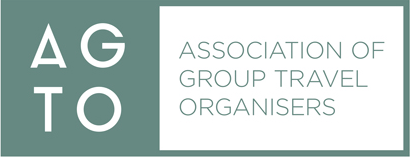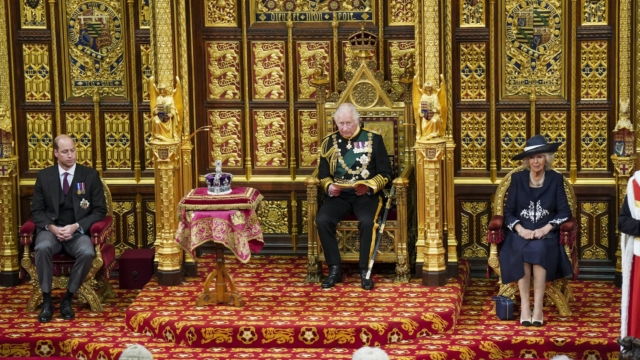COVID-19 Update 16th February 2021
- Impact of Covid on Travel and Tourism
ONS has published a report on the impact of Covid on the tourism industry that brings together a range of date over different time periods. The main findings of the report are:
-
- Monthly air passenger arrivals to the UK fell from 6,804,900 in February 2020 to 112,300 in April 2020, a fall of 98.3%.
- Greater London saw the largest fall in room occupancy of any English region from 2019 to 2020, with just 20% of rooms occupied in July 2020 compared with 90% in the same month in 2019.
- Accommodation and travel agency businesses saw the sharpest decline in turnover during the first national lockdown, falling to 9.3% of their February levels in May 2020.
- The proportion of businesses in travel and tourism industries trading peaked at 85% in October 2020, before declining in response to increasing restrictions in November.
- In the three months to June 2020, employment in accommodation for visitors fell by 21.5% compared with the same three months of 2019.
- In travel and tourism industries overall, the number of people aged 16 to 24 years saw the largest fall in employment of any age group between Quarter 3 (July to Sept) 2019 and Quarter 3 2020.
- Quarantine Hotels and Testing
With the implementation of the new testing and quarantine regime for people entering England today, there are a few details that are worth being aware of
Who needs to Quarantine
There seems to be some confusion on who needs to quarantine.
-
- DCMS have informed me that if there is a flight from a non- Red List Country (say Spain) which has someone on board that has been in a Red List country within the last 10 days, then it’s only that person that needs to use a quarantine hotel.
- However, they are also saying that if a flight from a non Red List country stops over in a Red List country, then everyone on board needs to use a quarantine hotel
Personally, I’m struggling to see the difference between 2 Red List people getting on a plane in a non Red List country and 2 red list people getting on a plane from a non Red List Country when it travels through a Red List country so I’ve asked DCMS to check this as it will impact flights through airports like Dubai.
Transiting airside through the UK
People transiting through the UK who stay airside do not need undertake a do not need to show a passenger locator form or pre departure test as they will will not pass through the UK border.
Exemptions from Testing
Bus and coach drivers are exempt from testing if they can to show that their travel is part of their job, for example a letter from your employer, a consignment note or your operator’s licence. This applies to drivers of public service vehicles and other employees of community licence holders for the international carriage of passengers by coach and bus.
Aircraft pilots and crew as defined in paragraph 1 of Schedule 1 to the Air Navigation Order 2016(h), where such crew have travelled to the UK in the course of their work
- What to Expect in Quarantine
The Government has published detailed guidance from people having to stay in a quarantine hotel as to what to expect during their stay and when they can leave.
- Clarification on Support Groups
The Government has produced greater clarification on the support groups exemption from the lockdown rules. Support that has to be delivered in person can continue with up to 15 participants where formally organised to provide mutual aid, therapy or any other form of support. Support groups must not take place in a private home. Examples of support groups include those that provide support to:
-
- victims of crime (including domestic abuse)
- those with, or recovering from, addictions (including alcohol, narcotics or other substance addictions) or addictive patterns of behaviour
- recent parents (including breastfeeding, postnatal, and baby and toddler groups, for the provision of support)
- those with, or caring for persons with, any long-term illness or terminal condition or who are vulnerable
- those facing issues related to their sexuality or identity including those living as lesbian, gay, bisexual or transgender
The limit of 15 does not include children under 5 who are accompanying a parent or guardian.
Where a group includes someone covered by an exception (for example, someone who is working or volunteering), they are not generally counted as part of the gatherings limit. This means, for example, a tradesperson can go into a household without breaching the limit, if they are there for work, and the officiant at a wedding would not count towards the limit.
https://www.gov.uk/guidance/national-lockdown-stay-at-home
- ALVA Sentiment Tracker
Attached a copy of the latest wave of ALVA’s Customer sentiment Survey. The main findings of which are:
-
- Confidence around visiting attractions is now more polarised compared with the first lockdown – whilst more will return quickly, there has been even greater growth in the segment unlikely to visit for a long time
- Around 40% feel less positive about visiting than they did during the first lockdown (18% feel more positive), with the impact of the virus now feeling greater for many – high infection rates, new variants etc.
- Concerns around distancing remain the focal point – pre-visit reassurance around limiting capacity (via pre-booking) and the ability to control distancing in practice will continue to be vital. The market is now much more accepting of mandatory mask wearing
- But when re-opening again, we need to remember that there are growing numbers who are questioning the value of the experience – we need to try to offer as full / normal a visit as possible
- With that in mind, it is important to note that anxiety around using facilities at attractions, while still high for many indoor facilities, is easing slightly – apart from interactives and audio guides
- The advent of vaccines is beginning to have some positive impact upon attraction visiting prospects, although this will be limited until the market feels that rollout to the wider population is complete
- In the short term, the impact of the vaccine is mainly in encouraging the fearful to at least consider a visit – moving people from ‘unlikely to visit for a long time’ to ‘wait and see what happens for a short while’
- Attractions are unlikely to see short term rapid increases in visits driven by a vaccination rollout – the impact of having the first vaccine dose increases the proportion saying they will visit any attraction from 44% to 48%, although the impact is greater (+7%) among those aged 55 or over


